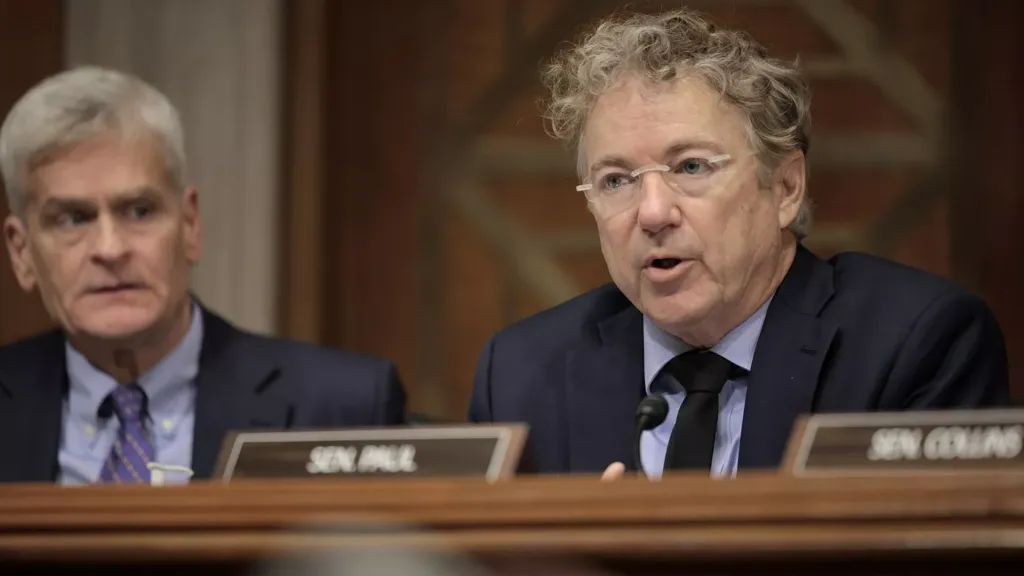Paul, an ophthalmologist, wrote on X that there was "no medical reason" to give newborns the vaccine if the mother was not infected.
Cassidy, a physician, responded that Paul's claim was "not true" and that children who are infected at birth have a "much higher chance of developing liver cancer and spreading hepatitis B to others."
Both Cassidy and Paul are on the Senate Committee on Health, Education, Labor and Pensions, with Cassidy serving as the committee's chair.
Newsweek has contacted the senators for further comment via emails sent outside regular business hours.
The debate comes after Health and Human Services Secretary Robert F. Kennedy Jr., a longtime vaccine skeptic, sparked alarm by dismissing every member of the Advisory Committee on Immunization Practices (ACIP) earlier this year. He replaced them with a handpicked group that included several vaccine skeptics, who announced in June that it would appoint work groups to evaluate the "cumulative effect" of the children's vaccine schedule as well as how the hepatitis B shot and the combination vaccine that protects against measles, mumps, rubella, and chickenpox (MMRV) are administered.
Some believe Cassidy deserves some blame. Though he had concerns about Kennedy's views on vaccines, Cassidy was the key vote that advanced Kennedy's nomination out of the Senate Finance Committee and to a full floor vote in the Senate in January.
Paul's post came in response to comments made by Dr. Demetre Daskalakis, the former director of the CDC's National Center for Immunization and Respiratory Diseases who resigned following the recent ouster of CDC Director Susan Monarez.
In an appearance on ABC's This Week, Daskalakis said the Kennedy's new vaccine advisory panel is "moving in an ideologic direction where they want to see the undoing of vaccination."
He said he predicted the appeal would "try to change the birth dose of hepatitis B vaccine so that kids don't get it when they're born."
While Paul claimed there was "no medical reason" to give the hepatitis B vaccine at birth and that all mothers who deliver in hospitals are tested, Cassidy disagreed.
In a thread, Cassidy said that not all mothers have prenatal care and some can become infected in "between testing in the first trimester and delivery." He added that "in some cases, the test is overlooked."
The Louisiana senator has also called for ACIP to "indefinitely postpone" its September 18 meeting following the removal of Monarez as CDC director, prompting Daskalakis and two other senior leaders to resign in protest.
In a statement, Cassidy said that "serious allegations have been made about the meeting agenda, membership, and lack of scientific process being followed for the now announced September ACIP meeting."
He said that if the meeting proceeds, "any recommendations made should be rejected as lacking legitimacy given the seriousness of the allegations and the current turmoil in CDC leadership."
Dr. Demetre Daskalakis said on ABC's This Week, about ACIP: "hepatitis B vaccine is on the agenda for the meeting ... in September. I predict that what they're going to do is try to change the birth dose of hepatitis B vaccine so that kids don't get it when they're born. So, if you have a mother who is well-connected to care, you know her hepatitis B status, that may not matter very much. But if you have a mother who's not gone to prenatal care, who comes in to deliver, we have one bite at that apple so that child gets that important hepatitis B vaccine. Why does it matter? Kids who have hepatitis B, they get liver scarring, it's called cirrhosis, later in life, or it's a really common cause of liver cancer."
Senator Rand Paul wrote on X, in response to Daskalakis' remarks: "No medical reason to give newborns Hep B vaccine if mother is not infected. All mothers who deliver in a hospital are tested. This 'scientist's' fetish for vaccines not supported by the data."
Senator Bill Cassidy wrote in response to Paul on Sunday night: "Empirically, this is not true. Not all mothers have prenatal care. Some get infected between testing in the first trimester and delivery. In some cases, the test is overlooked. If a child is infected at birth, they have a 95 percent chance of becoming chronically infected UNLESS, they get one dose of hepatitis B vaccine. If they do, they have less than a 5 percent chance of being chronically infected."
In other posts, Cassidy wrote: "If someone is infected at birth, they have a much higher chance of developing liver cancer and of spreading hepatitis B to others. The vaccine is safe as proven by study after study. MAHA starts with preventing vaccine preventable diseases. @RandPaul."
White House press secretary Karoline Leavitt told reporters during a press briefing last week: "The President and Secretary Kennedy are committed to restoring trust and transparency and credibility to the CDC by ensuring their leadership and their decisions are more public-facing, more accountable, strengthening our public health system and restoring it to its core mission of protecting Americans from communicable diseases, investing in innovation to prevent, detect and respond to future threats. That's the mission of the CDC and we're going to make sure that folks that are in positions of leadership there are aligned with that mission."
ACIP will next meet on September 18, according to the CDC's website.
The meeting will be open to the public via a live webcast. Members of the public interested in making a public comment during the meeting can submit requests from September 2 until 11:59 p.m. EDT on September 13.
